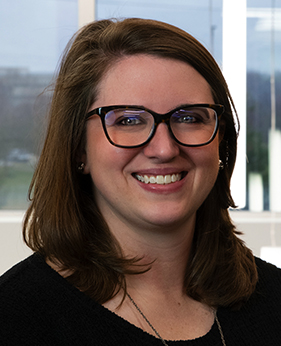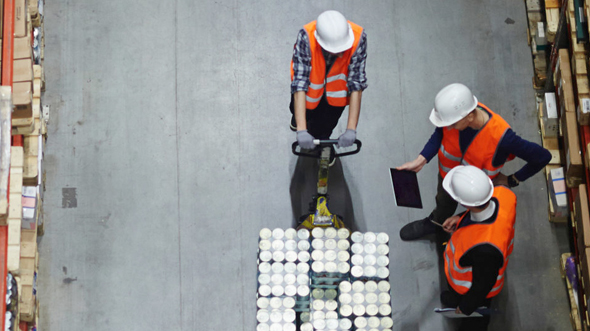
BLOG
—
Manifest 2022: Delivering the Future of Logistics
I recently returned from Las Vegas after attending the Manifest 2022 conference, which brought together a comprehensive global showcase of innovative technologies to propel logistics and end-to-end supply chain needs. Illustrating the value of the market today, the conference shared that $52 billion was invested in logistics technology in 2020. This supported the shipping of more than 274 million parcels daily and the $2 trillion spent in shipping costs over the course of the year.
More than 200 industry leaders representing companies including IKEA, E2open, Walmart Canada, Alibaba, UPS, Microsoft and SEKO Logistics presented at the conference. There were demonstrations with automated trucks, warehouse automation technologies and delivery bots that zoomed around the expo hall. Networking opportunities at the live event were immense, and attendees were encouraged to create new relationships before and during the conference using the MATCH! app. For those who wanted a break from networking with people, there was a puppy booth where you could play with a group of lovable and tail-wagging new friends.
The president of Manifest, Courtney Muller, organized a women’s networking lunch that was attended by over 150 women and about 50 men. Meredith Singletary, the senior human resources director for DHL Supply Chain, talked about the need for work-life balance and how it can be difficult for women to be respected in this male-dominated industry. She encouraged women to become leaders in the logistics supply chain space.
Many themes at the conference concerned the impact of COVID-19 and how it has disrupted supply chains globally, generating more online orders and additional supply problems, which in turn has led to more labor issues. However, many presenters also shared how the pandemic forced components of the supply chain out of their comfort zones. As a result, the supply chain is developing and implementing more autonomous, customer-focused solutions.
Tom Fiorita is the CEO at Point Pickup, a logistics company focused on grocery and perishable goods. He said that “predictable delivery will change the world. If you don’t have AI or ML in your solutions, you will be out of business.” This is a true statement. There is a clear association between supply and demand that is dynamic and learns as it goes. Brian Bourke, the chief growth officer at SEKO Logistics, said the goal is a “friction-less” delivery experience. To create more scalability for the future, he said, the delivery experience must be perfect.
According to representatives from the reverse logistics industry, the volume of goods returned in the past several years was astronomical. In 2021, returns accounted for $761 billion at Walmart and Amazon, with return rates jumping to 10% in 2020 and then to 16% in 2021. Most of those goods are reportedly sitting in trailers around the country. Buying something from one retailer and returning to a different retailer also is becoming increasingly common.
Happy Returns, an in-person return service owned by PayPal, is trying to make returns more sustainable by using fewer shipments and shipping everything in reusable containers. The company is among many in the industry examining more environmentally friendly processes and technologies for the delivery of goods and services.
The conference also touched on pressing issues that need to be addressed, including infrastructure issues at ports, enabling consistent updates for packages during shipment and elevating data visibility. “Transparency is key,” said Tive CEO and Founder Krenar Komoni, and “55% of retailers are trying new things.” This open market makes visibility to the resulting data and analytics vital to whether these retailers will continue to employ new technologies.
Overall, it was great to be able to meet with so many colleagues face to face and make needed connections. Although supply chain problems have increased recently, there also has been increased development and adoption of technologies that will provide needed support and will help develop impactful solutions moving forward.



